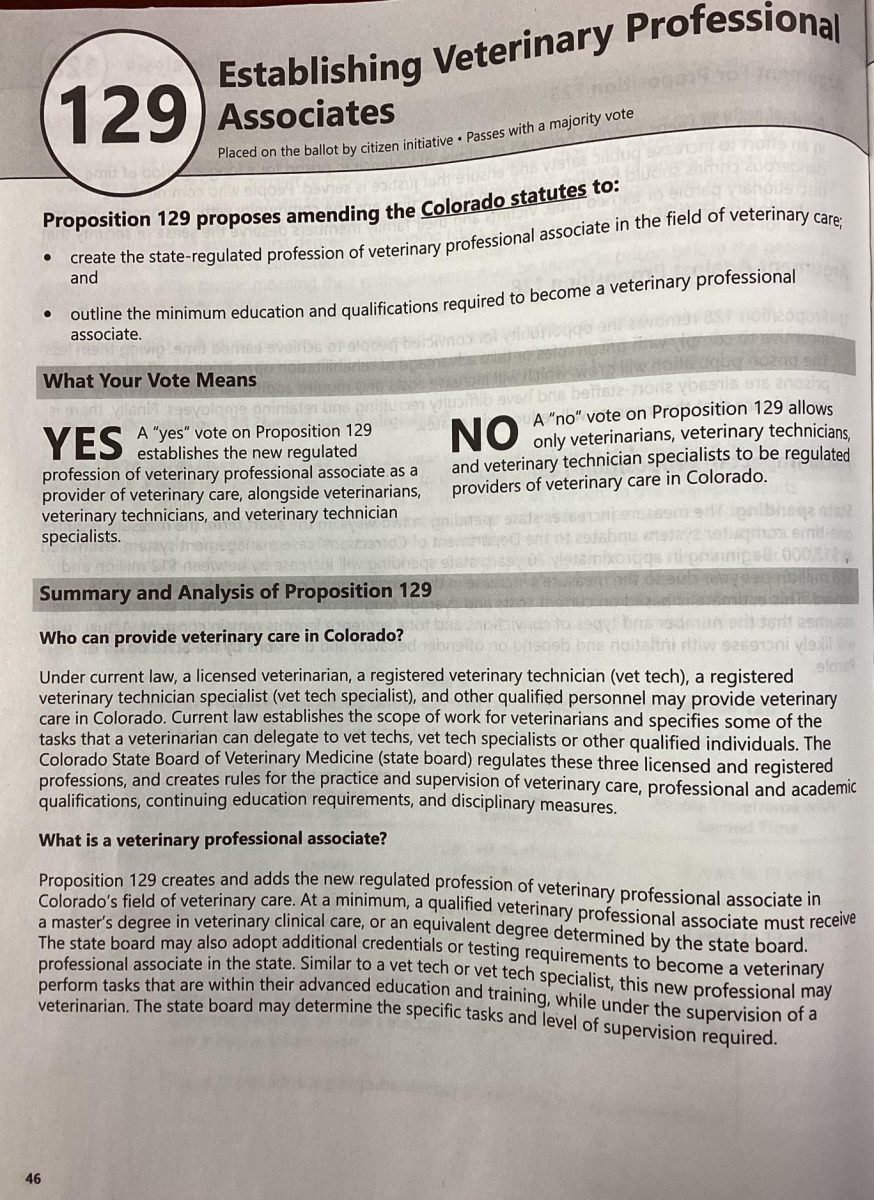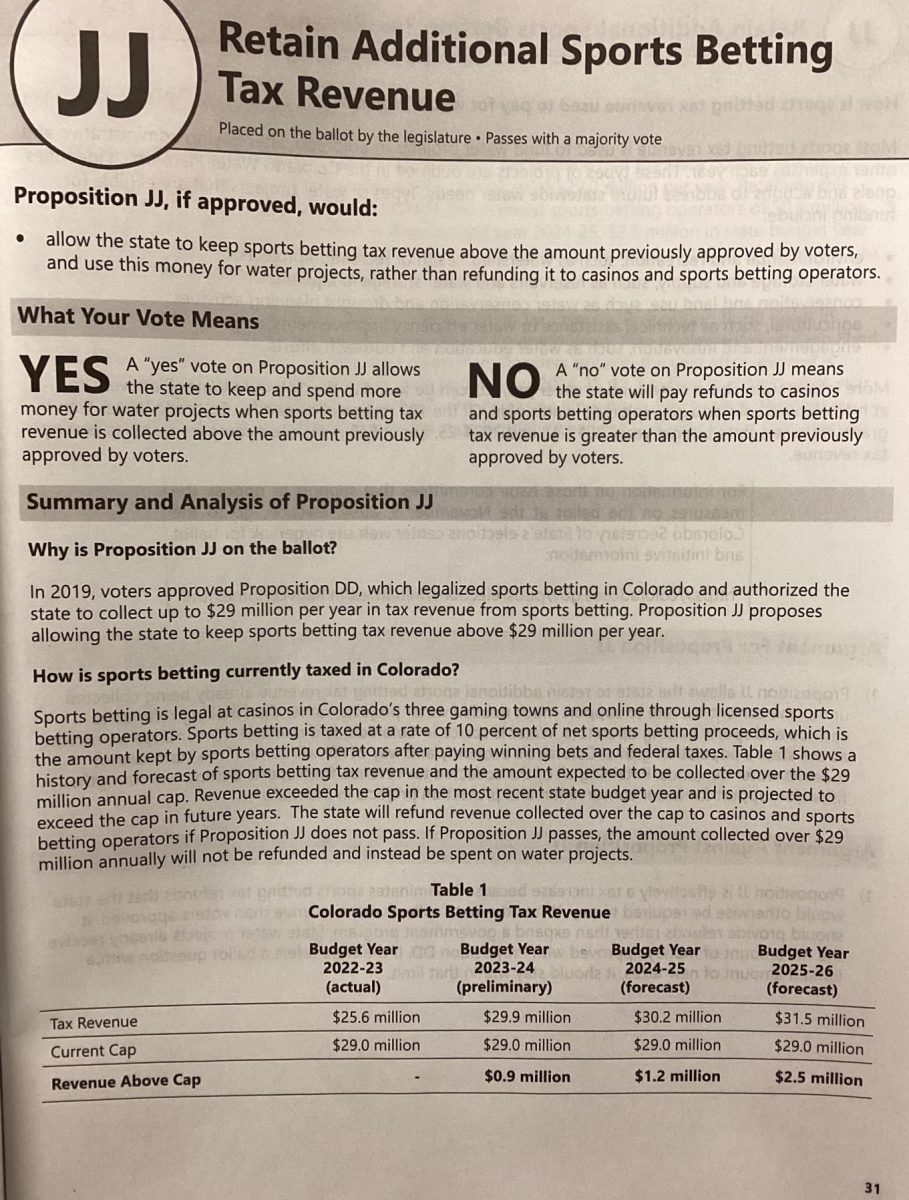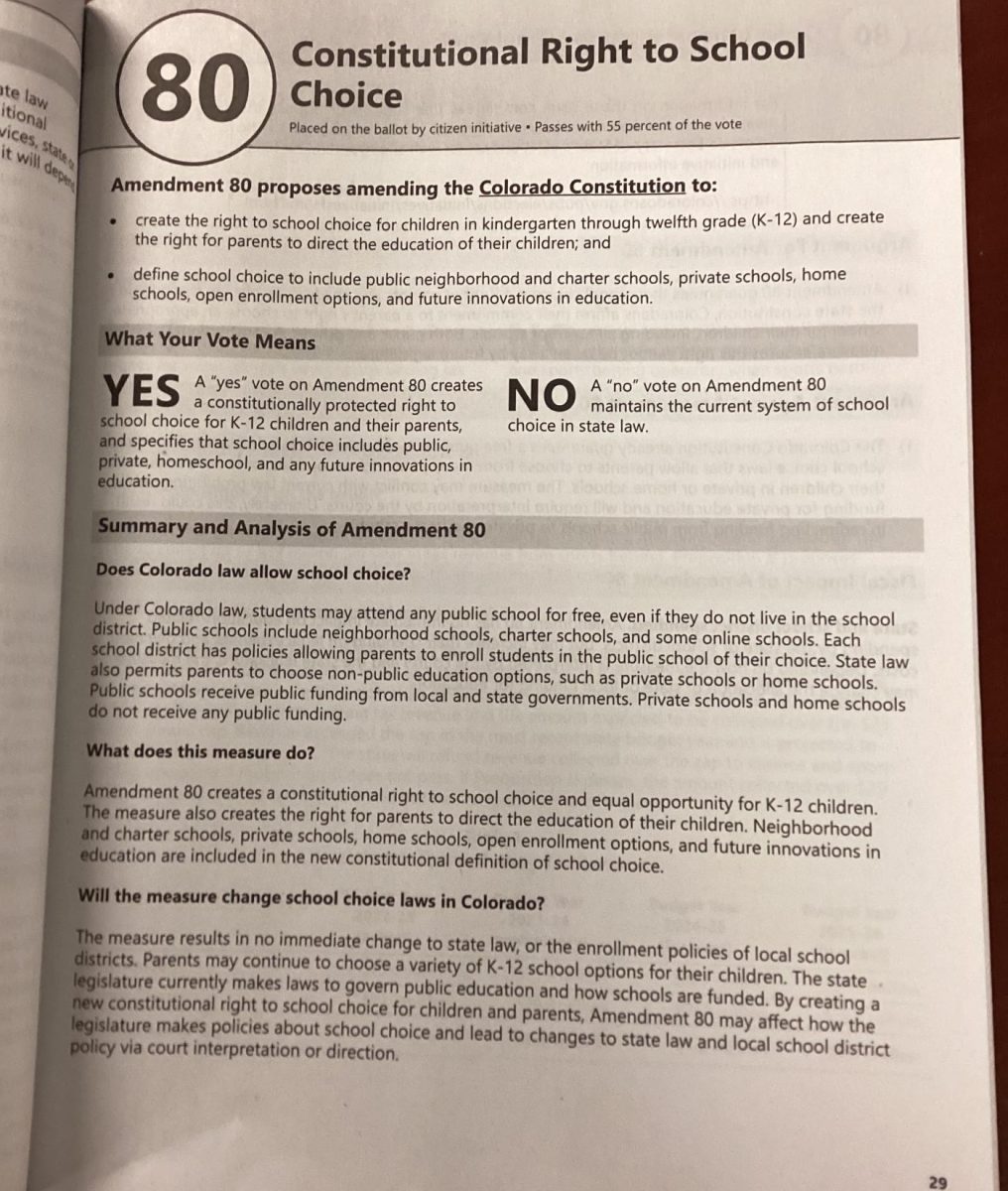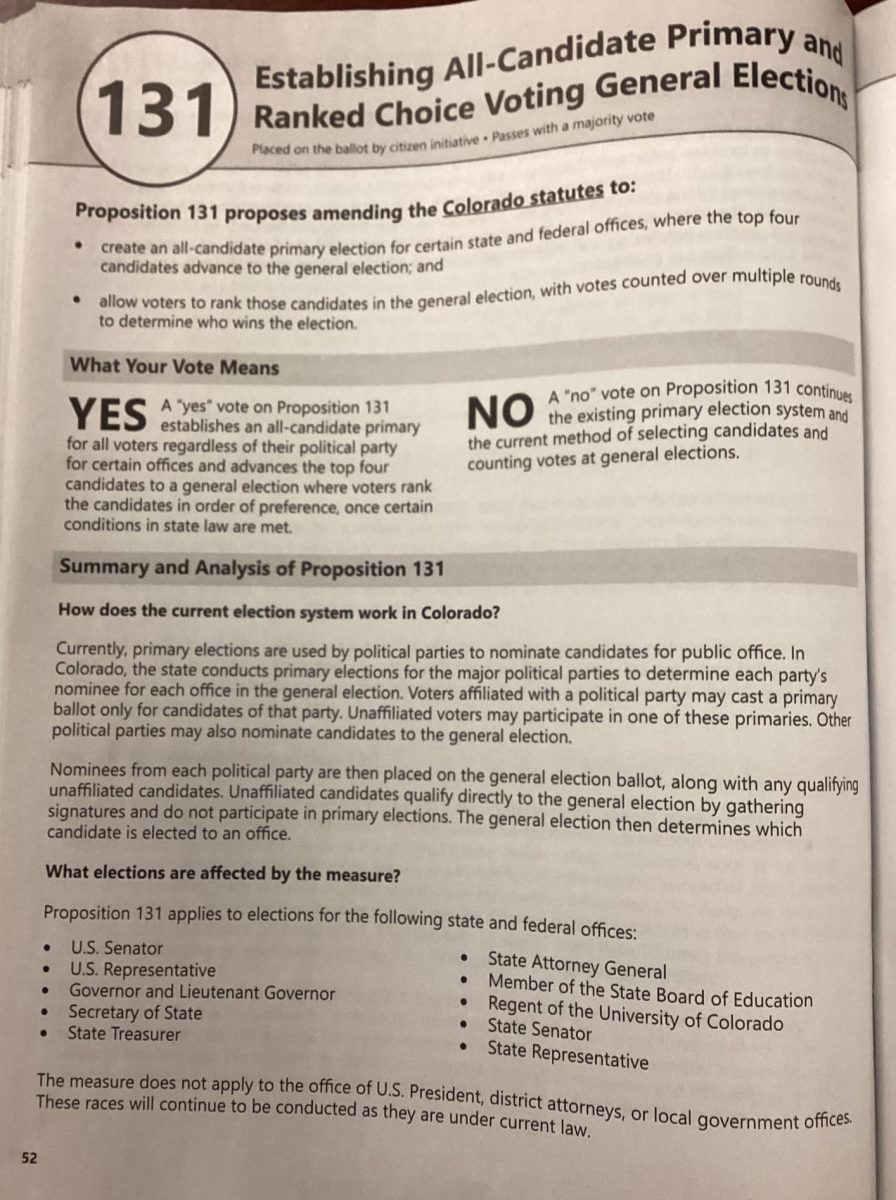According to some who are a part of the animal hospitality sector, Colorado is facing a deficit in the number of veterinary practitioners able to treat animals. As a result, Proposition 129 has been put on the ballot.
This proposition, placed on the ballot by the Dumb Friend League, aims to create a new veterinary position called a Veterinary Professional Associate (VPA). Those from the Dumb Friend League argue that this position will expand the veterinary workforce, meaning that there will be more practitioners able to care for animals. However, opponents argue that the proposition will create a veterinary position that devalues current professionals in the field, such as those with a Doctorate in Veterinary Medicine (DVM)—who the VPA’s would be working under. A VPA position requires less education, and VPA’s would be entering the workforce with less skills than a DVM. Finally, care will be compromised for the animals under the care of VPA’s.
With these arguments in mind, it seems crucial that we as a community vote “no” on Proposition 129. This way, our current veterinary professionals are not devalued, those who care for our animals are properly educated, and the quality of care is not diminished.
VPA’s will be competing in the field with DVM’s for pay and hours. It’s argued that this position was created as a way for companies to lower the cost of employment because VPA’s are paid less than a DVM due to their lack of experience and lack of rigorous education. Supporters state that this new position is necessary because “Colorado doesn’t have enough veterinarians, making it tough to find and afford care” (Colorado Proposition 129, Veterinary Professional Associate Initiative). However, proposition 129 devalues DVMs, as their position requires more experience and more education compared to a VPA.
The VPA position requires a student to obtain a master’s degree and register with the State Board of Veterinary Medicine, compared to the 4 years of undergraduate school plus the 4 years of medical school which a DVM is required to have. DVM’s also are required to have 1 year of in-person clinicals before they can be a certified veterinarian. VPA’s will be educated with “as little as three semesters of fully online lecture with no laboratory, a fourth semester of truncated basic clinical skills training, and a short internship” (Redd). While it will be easier for an individual to become a VPA than a DVM, many opponents are wondering if it will be enough education to be able to properly care for animals.
It is exactly this lack of experience and education that makes opponents so vocal about why you should vote no on proposition 129. It’s unclear what the exact responsibilities of a VPA will be, as the current outline of this new proposition is quite vague. However, it is known that they will not be able to prescribe medications, yet will be able to perform certain medical procedures and surgeries.
Dr. Katie Redd, a veterinarian and former member of Denver Dumb Friends League stated that it would be “a measure that would allow underqualified and inadequately trained individuals to perform medical procedures that should be left in the hands of fully licensed veterinarians.” Dr. Redd has dedicated her life to animal welfare and is one of many who opposes this proposition for this very reason.
Keep Our Pets Safe concedes this point by saying “this measure would allow VPA’s to perform surgery after only an internship” (Keep Our Pets Safe). That statement does not inspire confidence in the abilities of VPA’s and can feel like quite a risk for all pet parents, no matter what the procedure or care may be.
Overall, the opposition for this proposition is overwhelming. Many DVM’s, are worried about the implications that may come if this proposition is passed. If passed, the value of a DVM will be diminished because companies will likely hire an undereducated VPA rather than a DVM in order to cut costs. It is quite alarming the lack of education and experience a VPA needs to earn their certificate, and this can lead many pet owners to worry about the quality of care they will receive. Many opposers also argue that the benefits supporters believe will come from the passing of this proposition are not actually going to have the impact that is hoped for.
It’s clear to see how the benefits we could have from passing Proposition 129 do not in any way outweigh the costs. Colorado pet owners are not “guinea pigs” for policy makers to test new positions on and risk the lives of our beloved animals.
When at the ballot, keep our pets safe and vote “no” on Proposition 129.
____________________________________________
Works Cited
“Colorado Proposition 129, Veterinary Professional Associate Initiative (2024).” Ballotpedia, ballotpedia.org/Colorado_Proposition_129,_Veterinary_Professional_Associate_Initiative_(2024). Accessed 29 Oct. 2024.
Keep Our Pets Safe. “PROPOSITION 129 IS DANGEROUS FOR OUR PETS.” Keep Our Pets Safe, keepourpetssafe.com/?gad_source=1&gclid=Cj0KCQjwmt24BhDPARIsAJFYKk3Jjavb8w8_c_6UJvCPflA2fVBaT63oq0I17-HDomcsb-Msmf5UZ6IaAnyREALw_wcB. Accessed 29 Oct. 2024.
Redd, Katie. “Opinion: There are Colorado veterinarians worried about Proposition 129. Here is why I’m one of them.” The Colorado Sun, 17 Oct. 2024, coloradosun.com/2024/10/17/opinion-colorado-proposition-129-vet-associate-against.







